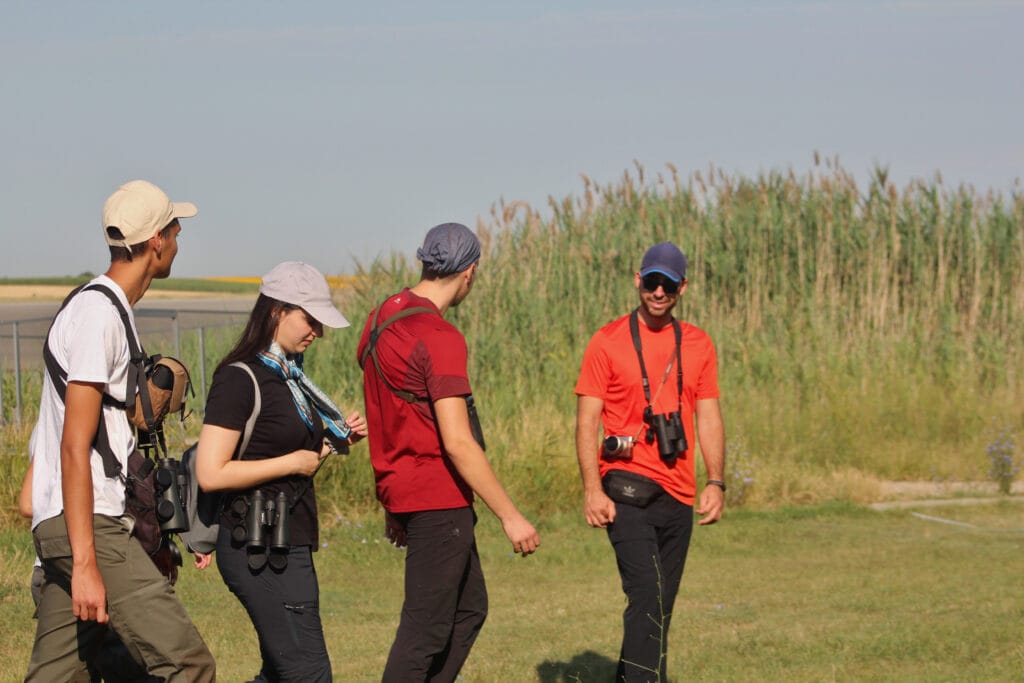The second camp organized in the framework of the Birds Without Borders project took place in Serbia. This time around, the participants were acquainted with a whole new group of birds – Raptors. The camp was dedicated to tagging the Eastern Imperial Eagle (Aquila heliaca), a species categorized as Vulnerable by the IUCN.
The participants had the opportunity to familiarize themselves with the procedures and techniques of fitting a large bird of prey, such as the Eastern Imperial Eagle, with a GPS tracking device. In addition, they also participated in several bird ringing activities, where the experts from BPSSS provided a first-hand account in ringing species such as the Common Kestrel (Falco tinnunculus), Red-footed Falcon (Falco vespertinus) and the Long-eared Owl (Asio otus).
During the camp, two fledglings, named Radenko and Ivanka, of the eagle were tagged with transmitters. Radenko and Ivanka flew out of the nest during the following days. They are still moving in its vicinity, from where they will soon continue their journey to warmer regions where they will spend the winter. The first year of life is full of challenges for them, and the chances of survival are reduced by lack of food, poisoning, poaching as well as collision and electrocution from power-lines.
The tagging of the Eastern Imperial Eagle with transmitters was made possible by the implementation of the project “Birds Without Borders – Phase II” supported by the Western Balkans Fund (WBF) and the European Union through the program within the call for proposals for regional projects “Support for the promotion of regional activities of civil society in the Western Balkans”, as well as through the “PannonEagle LIFE” project, which is implemented with the financial support of the LIFE program of the European Union.




